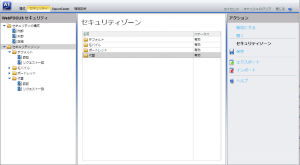


keytool -genkeypair -keyalg RSA -keysize 2048 -keystore keystore.jks -alias server -dname 'CNHakan,OUAmsterdam,OThunderberry,CNL' -storepass secret -keypass secret -validity 3650 -ext KeyUsagedigitalSignature,dataEncipherment. Before reading this guide, users should read through the Security Architecture document for Red Hat JBoss Enterprise Application Platform 7.0 and have a solid understanding of. Generate a Java keystore and key pair and include Distinguished Name as one-liner and the Extensions.
#Kypass 127.0.0.1 how to#
More specifically, this guide details how to secure all of the management interfaces on JBoss EAP. So a visit to the page is in order I think.Īlso, I notice you have Foxit Reader installed. The purpose of this document is to provide a practical guide to securing Red Hat JBoss Enterprise Application Platform. It's difficult to see whether any of the others are out of date because I can't see the versions. This will prevent so called drive-by downloads when you inadvertently visit a site which has been compromised. Disable it before you visit any sites you haven't been to before.
#Kypass 127.0.0.1 install#
Last but not least, install this add-on: It adds a button to the toolbar which you can use to disable/enable Javascript on the fly. if you see this is only for concatenate Write-Host with Get-Command probably check the path of your Java SDK ‘C:\Program Files\Java\jdk\bin\keytool.exe’ this is for my machine but probably you have another one for yours.

#Kypass 127.0.0.1 password#
A good external password manager is "Keepass", free from Similarly, we generate the client key store and export its certificate: keytool -genkey -alias clientkey -keyalg RSA -keysize 2048 -sigalg SHA256withRSA -keystore clientkeystore.p12 -storepass password -ext sanip:127.0.0.1,dns:localhost keytool -exportcert -keystore clientkeystore.p12 -alias clientkey -storepass password -rfc -file client-certificate.pem keytool -import -trustcacerts -file. Sorry to heard that and the late reply, mm looks like it doesn’t accept the & in line 50 any way probably you can remove it. This particular Trojan incorporates a keylogger, so it's advisable to change all your passwords now. Some of those may come from dubious sources. In addition to localhost and 127.0.0.1, this example includes a LAN IP address 192.168.1.3 for the machine the Solr nodes will be running on: keytool -genkeypair -alias solr-ssl -keyalg RSA -keysize 2048-keypass secret -storepass secret -validity 9999-keystore -ext SAN DNS. See Īsk(dot)com directs your searches to its advertiser database before displaying any neutral results like Google does. Did you opt out of the Ask Toolbar installation which comes bundled with that? If not, then you'll find the Ask Toolbar by clicking the Firefox button, then Add-ons | Extensions. So a visit to the Plugins Check page is in order I think.Īlso, I notice you have Foxit Reader installed. Vulnerabilities in your system as far as Firefox is concerned currently lie with your Plugins. Logstash has been missing a way to receive data through HTTP requests, but not anymore The logstash-input-http plugin is now available for everyone Also, starting with Logstash 1.5.2, it is included as one of the default plugins that are distributed with the official release.


 0 kommentar(er)
0 kommentar(er)
